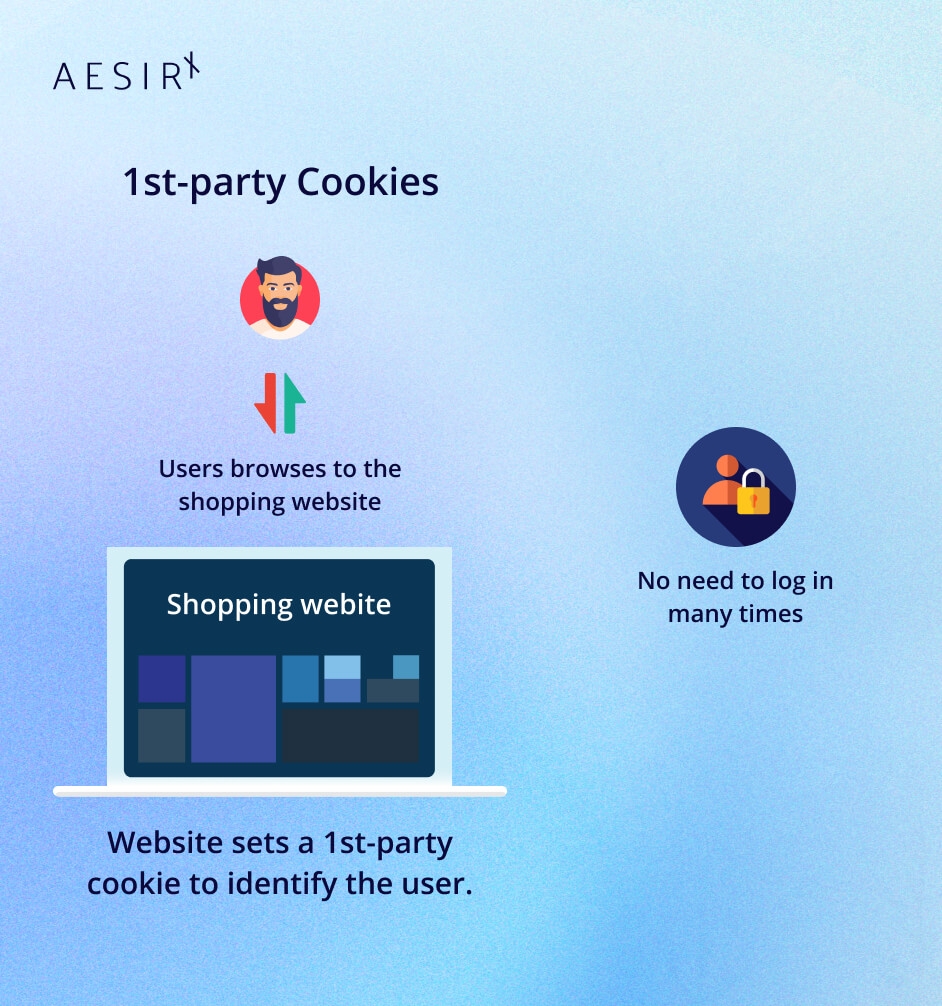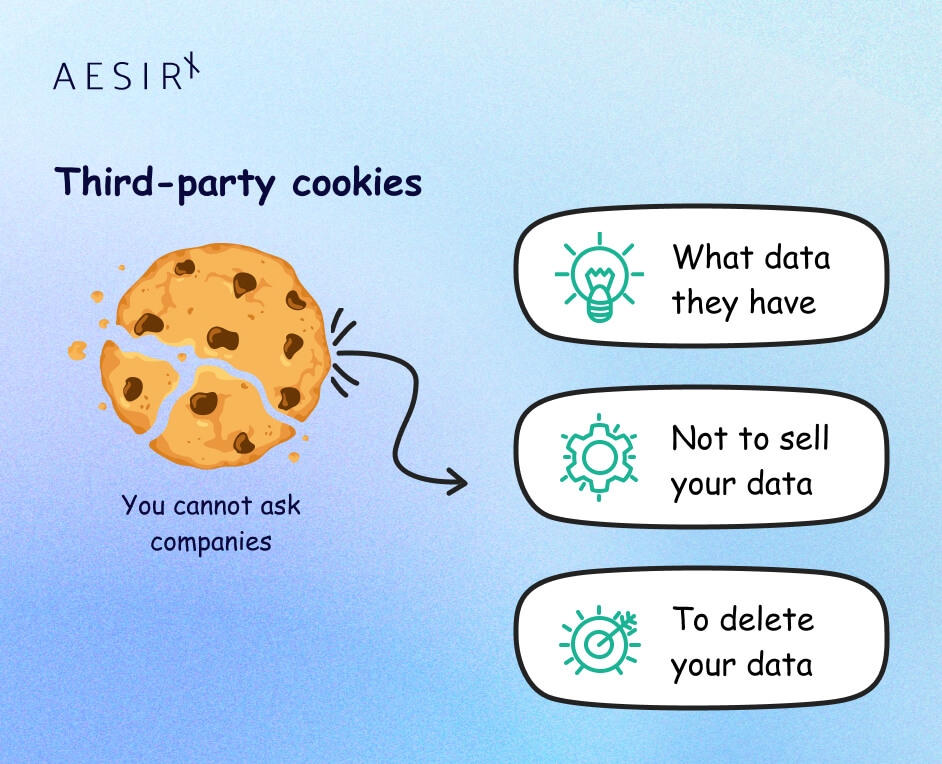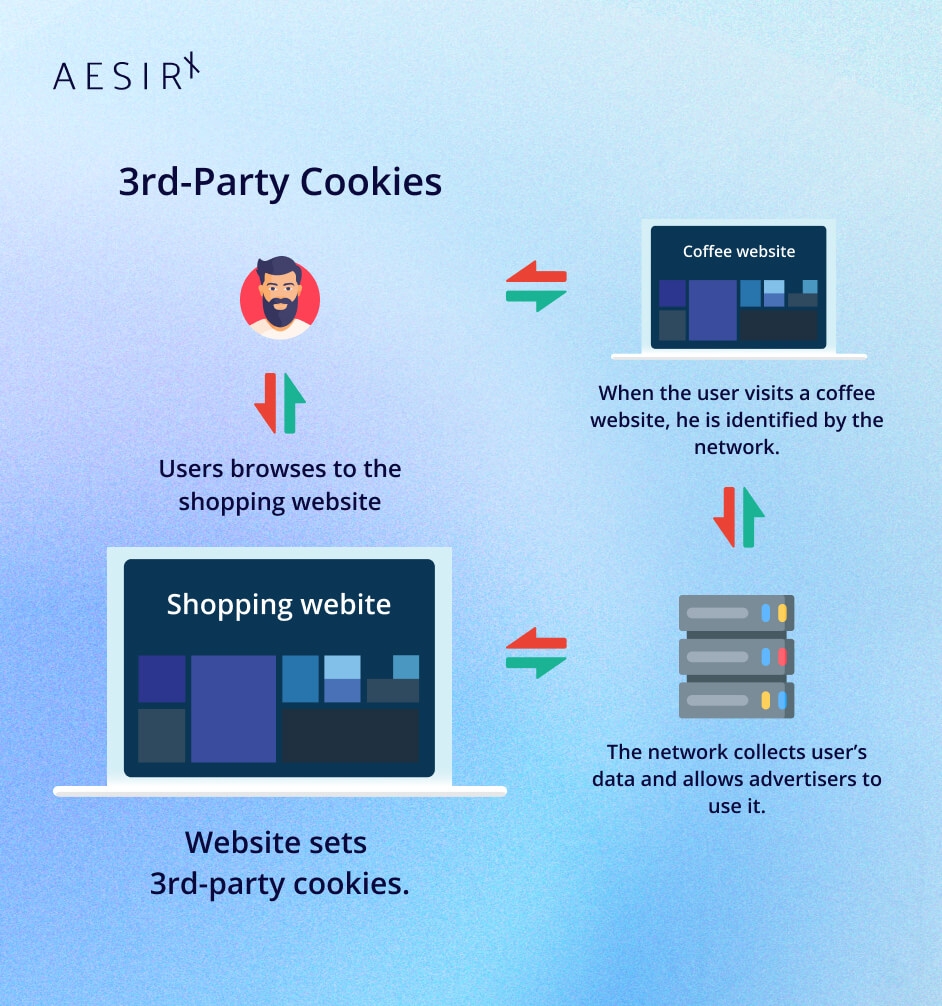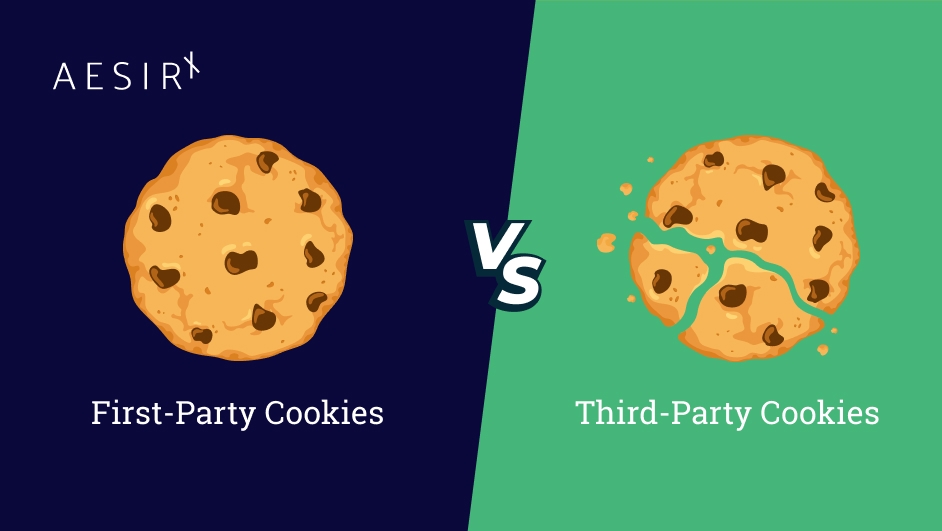Digital cookies are used to enhance the user experience, but that depends on how and why businesses utilize them. Websites use cookies to track users’ activity and record what they are interested in. The purpose is supposed to give users a better and more personalized experience but more often than not, the data is collected without their consent and shared with third parties for targeted advertising. Yet, not all cookies are bad and the difference between first-party and third-party cookies is huge! These two cookie types function differently, serve different purposes, and impact first-party data vs third-party data in unique ways.
What Are First-Party Cookies?
Consider that you visit a shopping website and log in to see its content. Your browser sends your username and password to a server to verify them. The server will then send you the site content after everything is successfully verified. However, here is the thing. The HTTP that we use to browse the internet is a STATELESS protocol, which means the server has forgotten who you are whenever you send it another request to log in to the same website. As a result, they will ask you to log in again and again whenever you come back to the website, which is time-consuming.
This is when first-party cookies can help.
When you log in to the shopping website, your browser sends information to the server. But in addition to returning the requested site content, it also sends back a cookie or a packet of cookies. They are first-party cookies.
Once saved on your computer, the cookies are sent to the server along with each request you make. As a result, the cookies have a special code that enables the server to remember you and keep you logged in. If you return back to the website, these cookies allow certain information to still live there, including your username, address, payment, items in the shopping cart, language setting, etc. First-party cookies also provide better shopping recommendations and customize the content, making them a powerful first-party cookies solution for businesses looking to enhance user experience without compromising privacy.
In short, this gives you a better user experience.

Additionally, if you delete all first-party cookies stored on the website, you will have to sign in each time you visit since first-party cookies are now blocked. Or when you leave the website, tracking information will not remain on your computer and the server can no longer track your activity. This is totally safe and legal.
Until now, cookies have been helpful. However, some parties have taken advantage of this and made another type of cookie that has an extremely unpleasant effect on users; third-party cookies.
What Are Third-party Cookies?
Third-party cookies are not placed by the domain or website but by advertisers through a script or tag so that they can retarget you with personalized messaging on your behavior online. If any website has the code from a third-party server, it can access customers’ personal data.

Similar to the preceding story of the shopping website, cookies are sent following a successful login. After spending some time on the product pages and browsing a few items, you add a few things to your shopping cart. The blue T-shirt is the only thing you decide to buy after that. You then pay, leave the website, and wait for the T-shirt to come.
But hold on, it doesn't end there.
For first-party cookies, data ownership is clearly defined, ensuring user control over personal information. If you visit a different website later, the latter can’t read the cookies from the first website.
But for third-party cookies, websites would prefer to approach user data a little differently by pushing the data limitations. Instead of using first-party cookies, the website or domain sets third-party cookies on your computer, gives them a special ID, and preserves the remaining information in its own system. Now, cookies just act as an identifier. Third-party cookies can access all information you have saved on multiple websites once they can identify your computer.
For example, you close the shopping website, then visit a coffee website or any new website for the first time. Now, you are already identified by the cookies and served targeted ads. How? Every website constantly incorporates small pieces of one another, creating a big network. So, all websites are somehow connected. As a result, whenever you visit a website, the network recognizes you and allows advertisers to follow your online behaviors. They can access and use your data without your permission.
You will thereafter get emails and other ads for the products you looked at but didn't buy. However, businesses now have access to retargeting alternatives that prioritize consumer privacy. That tracking information will remain on your computer even after you close your browser and end the session. This is annoying and NOT legal.

Make Third-party Cookies Obsolete with AesirX
GDPR, which stands for The General Data Protection Regulation, is a set of EU laws that came into effect in 2018. The purpose of the GDPR is to require a website to show a pop-up, making it easier for EU citizens to understand how their data is being used, and also raise any complaints about data privacy.
Any company that targets or gathers information about EU citizens without permission will be fined and penalized.
CCPA, which stands for The California Consumer Privacy Act, gives users more control over their data, including the right to:
- Ask businesses what data they have about them
- Ask businesses not to sell their data
- Ask businesses to delete their data
These changes in the regulatory environment have signaled AesirX to develop a more civilized cyberspace, where humans are safeguarded and their rights are not violated in any aspect. This very foundation of trust is the basis for the build-up of 20 solutions from AesirX launched within 2 years.
Our privacy-first solutions are built to protect people against Big Tech's data misuse in marketing, with customer privacy in mind. Neither third-party tracking cookies are used nor third-party data is collected by AesirX. Check your website's compliance with privacy-first analytics; ONLY ever first-party data. These solutions allow your businesses to facilitate your marketing strategies in a legal and compliant manner, highlighting their adherence to data privacy and consumer protection laws like GDPR and CCPA.
Everyone now has the option to use technology that doesn't rely on data abuse and where data ownership is first party. Additionally, everyone has the power to end the era of customer privacy abuse and eliminate third-party tracking cookies. You just need to switch.
DOWNLOAD AesirX Solutions for FREE via GitHub.
Or Visit AesirX.io for more information.
Contact
- AesirX.io Ltd.
- Ronni K Gothard Christiansen, Creator - ronni@aesirx.io
- 447 Broadway, 2nd Floor, Suite #1305, New York, NY, US, 10013




